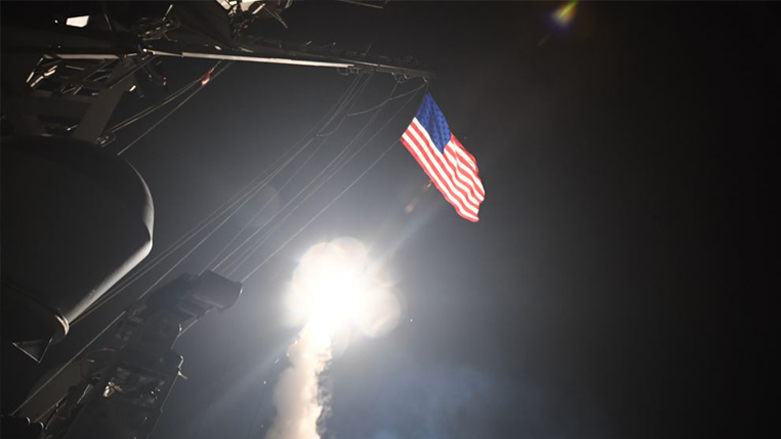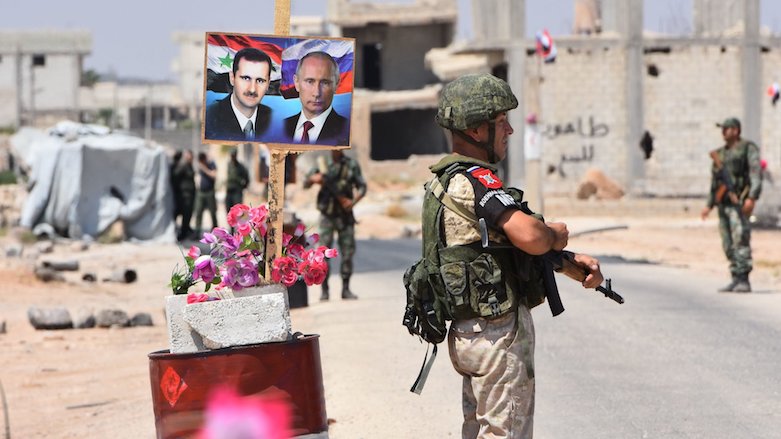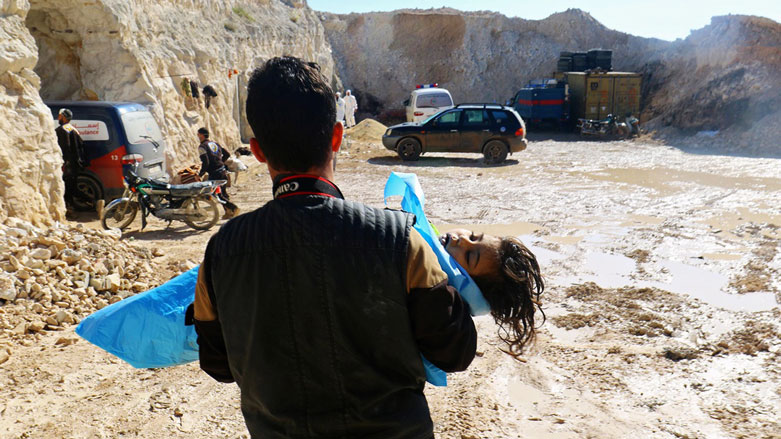US prepares to strike Syria, if chemical weapons used in Idlib

WASHINGTON DC (Kurdistan 24) - The US has prepared an initial list of targets, if Damascus uses chemical weapons in its widely-anticipated offensive on Idlib, the last remaining rebel stronghold in Syria.
As CNN reported on Friday, citing a Trump administration official, the US “could respond very quickly,” if Syria used such banned weapons.
On Thursday, Syrian Foreign Minister and Deputy Prime Minister Walid Muallem travelled to Moscow, where he met with Russian Foreign Minister Sergei Lavrov. Afterwards, the two officials held a press conference.
Lavrov’s remarks were particularly brutal, as he described Idlib as a "festering abscess" that needed to be “liquidated.”
For his part, Muallem reiterated the regime’s determination to retake the entire country, regardless of any “tripartite aggression”—reference to the coordinated US, UK, and French strikes that followed Syria’s use of chemical weapons in April in a suburb of Damascus.
On Friday, the next day, US Secretary of State Mike Pompeo issued two tweets, warning against military action.
“Lavrov is defending Syrian and Russian assault on #Idlib," Pompeo wrote. “The U.S sees this as an escalation of an already dangerous conflict.”
“The 3 million Syrians, who have already been forced out of their homes and are now in #Idlib, will suffer from this aggression,” he continued, warning, “the world is watching.”
Already on Wednesday, NATO’s chief spokeswoman, Oana Lungescu, disclosed that Russia was building up its naval forces in the eastern Mediterranean, off the coast of Syria, as she urged “restraint.”
The following day, Moscow announced it was holding a naval exercise in the area that would begin on Saturday, involving some 25 ships and 30 planes, and last for a week.
Russian and Syrian officials have claimed that Western countries are preparing a “false flag” operation, in which rebels will use chemical weapons to serve as a pretext for another US-led military strike.
The State Department denounced the “specious allegations of international plans to stage a chemical weapons attack in Syria” in a statement issued on Friday, which also announced that the newly-appointed Special Representative for Syria Engagement, Amb. James Jeffrey, and Joel Rayburn, Near Eastern Affairs Deputy Assistant Secretary and Special Envoy for Syria, will travel to Israel, Jordan, and Turkey to discuss the Syrian crisis.
On Tuesday, responding to a question from Kurdistan 24, State Department Spokesperson, Heather Nauert, warned that the US will hold Russia and Syria “accountable” for any escalation in Idlib, “especially, most especially, for the use of chemical weapons.”
Jeffrey and Rayburn will reiterate that message in their trip to the region.
Idlib was one of four “deescalation zones,” established in the fall of 2017 during Russian-led negotiations in Kazakstan and attended by Iran and Turkey, as well as Russia.
At the time, Moscow presented the “deescalation zones” as areas where civilians would be safe, and Washington acquiesced in the proposal.
But a year later, the “deescalation zones” have emerged merely as targets of successive regime offensives.
Paul Davis, whose career began as an expert in Soviet affairs and who is now a Senior Fellow at Soran University, suggested to Kurdistan 24 that the Russians had deceived the US.
“We wanted to believe that Russia was being helpful,” Davis said. “But Moscow has its own interests, and this serves a Russia-first policy.”
Over the course of the Syrian civil war, civilians and rebels from other parts of the country have been moved into Idlib, on the assumption it was a safe haven, while Turkey assumed responsibility for ensuring the cease-fire there.
Some one million displaced Syrians are now in Idlib, swelling its population to over three million.
In the event of a regime assault, a massive refugee crisis is feared, as people flee toward the Turkish border.
However, Turkey already hosts over three million refugees from Syria and has sealed its border, saying that it is not prepared to accept any more.


